Resources
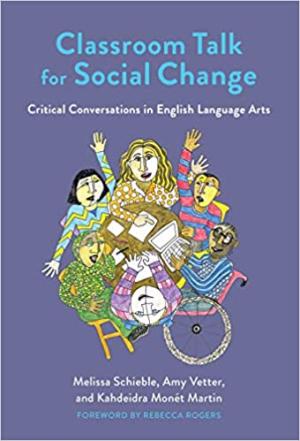
Learn how to foster critical conversations in English language arts classrooms. This guide encourages teachers to engage students in noticing and discussing harmful discourses about race, gender, and other identities. The authors take readers through a framework that includes knowledge about power, a critical learner stance, critical pedagogies, critical talk moves, and vulnerability. The text features in-depth classroom examples from six secondary English language arts classrooms. Each chapter offers specific ways in which teachers can begin and sustain critical conversations with their students, including the creation of teacher inquiry groups that use transcript analysis as a learning tool. (From the Publisher)
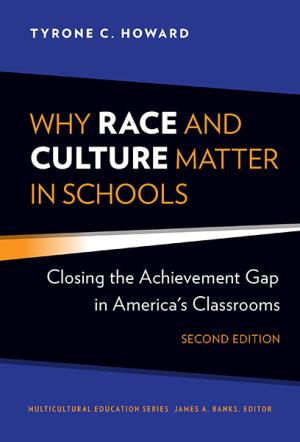
Issues tied to race and culture continue to be a part of the landscape of America’s schools and classrooms. Given the rapid demographic transformation in the nation’s states, cities, counties, and schools, it is essential that all school personnel acquire the necessary knowledge, skills, and dispositions to talk, teach, and think across racial and cultural differences. The second edition of Howard’s bestseller has been updated to take a deeper look at how schools must be prepared to respond to disparate outcomes among students of color. Tyrone Howard draws on theoretical constructs tied to race and racism, culture, and opportunity gaps to address pressing issues stemming from the chronic inequalities that remain prevalent in many schools across the country. This time-honored text will help educators at all levels respond with greater conviction and clarity on how to create more equitable, inclusive, and democratic schools as sites for teaching and learning. (From the Publisher)
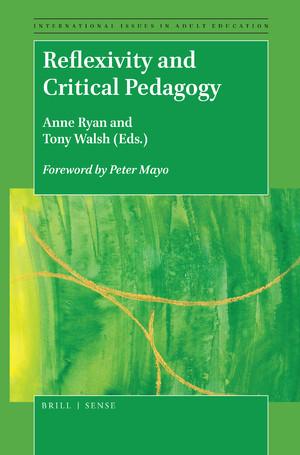
Click Here for Book Review This book would be especially helpful for educators and administrators hoping to equip their students with theoretical tools and practical exercises aimed at “bringing to light dynamics of power which privilege conformity” and “revealing the normally occluded dynamics of dominant discourse”(6). It is also a resource for those who see themselves occupying hybrid spaces; those who acknowledge a multiplicity of knowledges and competing and intersecting realities and experiences, who interrogate and trespass boundaries, and, overall, who strive to “see” the water in which they swim. - Katherine Daley-Bailey, University of Georgia Reflexivity and Critical Pedagogy highlights the essential nature of reflexivity in creating sites for transformative possibilities in education. The book argues that seemingly intractable epistemological inequalities are embedded within educational structures and processes and also contends that perspectives which define knowledge as a unitary truth are essentially inadequate to address current global problems. Further, it argues that people and ideas traditionally positioned outside the academy are vital to developing more effective educational interventions. This volume stresses the influence of dominant societal discourses in creating and sustaining particular and limited definitions of knowledge. It also explores their power in delineating acceptable processes of knowledge dissemination. These discourses, whether consciously or otherwise, indwell teachers, learners and policy-makers as well as educational structures and organisations. It proposes reflexivity as the key component needed to combat such forces and one that is an essential ingredient in critical pedagogy. (From the Publisher)
This Forum explores what the Association of Theological Schools (ATS) has been learning about formation in online contexts through the Educational Models and Practices project. Deborah Gin's opening essay briefly enumerates operating assumptions, several widespread misconceptions, and emerging recommended practices. G. Brooke Lester proposes a definition of formation as transformation towards community, which is grounded in constructivist learning theory. He then reflects on the possibilities for this kind of community through online learning environments. Barbara Blodgett's contribution draws on “transactional distance theory” to analyze how a variety of pedagogical techniques (both online and face to face) can work to either exacerbate or minimize the distance between learners, which is an important contributor to formation and community. The Forum originated as panel presentations at the November 2017 Society of Biblical Literature and American Academy of Religion conferences.
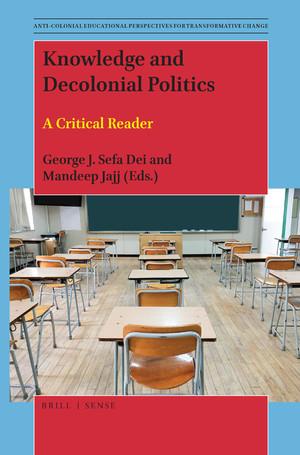
Click Here for Book Review Knowledge and Decolonial Politics: A Critical Reader offers the perspectives of educators and learners within current developmental settings, highlighting the systemic barriers faced whilst trying to implement decolonial pedagogies and practices. In the hope to challenge the dominance of Western Eurocentric thought in education and international development, the authors of this book offer counter narratives to promote the use of embodied cultural knowledges and histories, along with Indigenous perspectives, in order to subvert Western knowledge systems which are inherently colonial in nature. Changing education as we know it today requires creating spaces in which multiple knowledges can co-exist and benefit from one another. These spaces will ensure the continuity of decolonial practices and shape the intellectual politics of future generations. (From the Publisher)
This essay explores challenges that arise for professors who teach critical theory in our current climate of conservatism. Specifically, it is argued that the conservative commitments to non-revolutionary change and reverence for tradition are corrupted in our current political and intellectual climate. This corruption, called "ideological imperviousness," undermines the institutional structures put in place to produce a functional educational environment that imposes an unjust vulnerability on professors and risks depriving students of the opportunity to acquire the critical skills necessary to combat their own vulnerabilities.
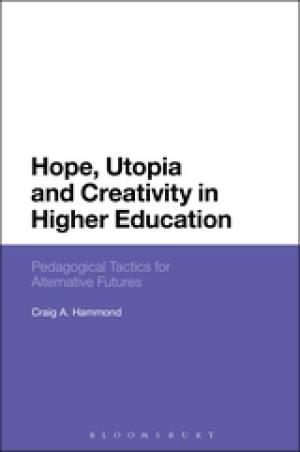
Click Here for Book Review Reappraising ideas associated with Ernst Bloch, Roland Barthes and Gaston Bachelard within the context of a utopian pedagogy, Hope, Utopia and Creativity in Higher Education reframes the transformative, creative and collaborative potential of education offering new concepts, tactics and pedagogical possibilities. Craig A. Hammond explores ways of analysing and democratising not only pedagogical conception, knowledge and delivery, but also the learning experience, and processes of negotiation and peer-assessment. Hammond shows how the incorporation of already existent learner hopes, daydreams, and creative possibilities can open up new opportunities for thinking about popular culture and memory, learning and knowledge, and collaborative communities of support. Drawing together theoretical and cultural material in a teaching and learning environment of empowerment, Hammond illustrates that formative articulations of alternative, utopian futures, across sociological, humanities, and education studies subjects and curricula, becomes possible.
Almost twenty-five years ago a small, liberal arts college began a journey into critical pedagogies, both in some classes and at the departmental level. Students and faculty engage in department work together--setting curriculum, assessing programs, planning events, and rotating chairing of meetings. We are attempting to engage in transformative leadership with each other, as we re-imagine what a truly radical, democratic department would look like.
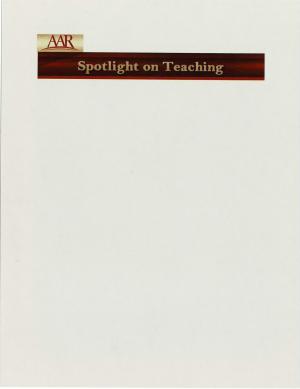
Journal Issue. (This issue, and all "Spotlight on Teaching" issues prior to 1999, are not available on the AAR website.)
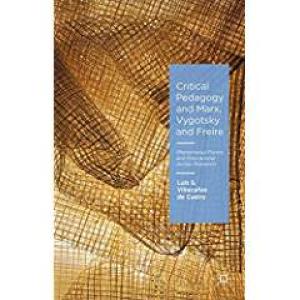
Click Here for Book Review This book explores Marx's theory of the phenomenal forms in relation to critical pedagogy and educational action research, arguing that phenomenal forms pose a pedagogical obstacle to any endeavour that seeks to expand an individual's awareness of the larger social whole. (From the Publisher)